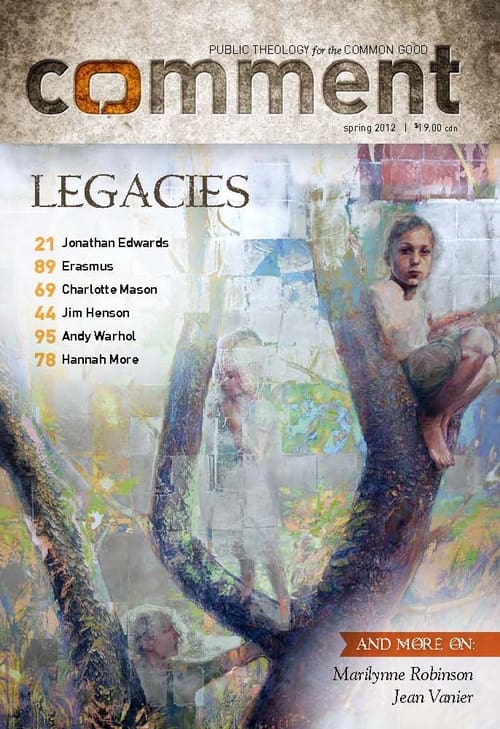Legacies are given to us by those who are dead. Perhaps this indisputable fact is the reason why our culture does not know how to deal with legacies. Cultures—from the Egyptians to the Romans to the Soviets—have traditionally treated the dead with a combined sense of awe and fear. On the one hand, the dead are treated as gods—embalmed and revered, sometimes worshipped. Alexander the Great and Lenin are treated this way, but so are the modern dead. Think of the strange rites that accompanied the celebrations of death for Princess Diana, John F. Kennedy, or John Lennon. Think of the myths that have emerged around their personalities and lives.
But lurking beneath this strange reverence is a profound sense of fear. The dead scare us; we worry that we will not live up to their greatness. We worry that the horrors perpetrated by those who have passed will reappear again and haunt us like ghosts.
These opposite but strangely entwined responses to the dead inform our culture’s approach to legacies. We think of them as something to be either worshipped or thrown on the trash heap. We idolize the past, or we consider it unworthy of our respect and attention or, worse, we see it as something to be thrown down the memory hole in fear of it coming back. This causes us to suffer from blind spots; we try to force discussions about individual and shared histories into the manifestly unhelpful boxes of progressive versus conservative.
Christians, however, can take a different tack. The picture of legacies provided to us in Scripture enables us to see the acts of humans as significant, as laden with meaning. Ours is a historical faith, so we may evaluate history without falling into the twin traps of idolatry or fear because it centres on a living God who acts within history. Our God is the God of Abraham, Isaac, and Jacob. He is the God of Augustine and Erasmus, of the Church Fathers, of Jonathan Edwards and Jean Vanier.
And so the past is worthy of our careful study. We, then, are free to think of legacies as gifts. The past contains gifts that each generation must re-open—some to be treasured, some to be viewed and sent back. Yet this is always a tricky venture; it runs the risk of whitewashing history. Can we really receive gifts from someone such as Jonathan Edwards, knowing that he was a slave-owner—and an unrepentant one at that?
Yes. We who are Christians can be generous in our evaluations of the legacies of those gone before us because we know that all have sinned—that everyone in history, including those we admire most, including even ourselves, leaves a legacy of brokenness and falling short. And just as we are called to show love to one another, we are also called to love those who have gone before us. We can do this because we recognize that there is only one legacy worthy of our unequivocal praise.
That legacy—the inheritance we receive through the love of Christ, as we learn in Romans—provides us with perhaps the clearest and most helpful way of understanding the gifts and horrors of those who have gone before us.
Every Sunday morning, Christians around the world recite the acclamation of the great mystery of this historicity when we say, “Christ has died, Christ has risen, Christ will come again.” So we can be grateful for the good gifts and be certain that the bounds of God’s grace are not constrained by time—”redemption rips through the surface of time”—and can be glimpsed in the work of those who respond to it.
In this edition of Comment, we dwell in this knowledge, rejecting both our tendencies to ignore and to idolize the past. Instead, we seek to draw the good out of legacies, as we acknowledge, with grace, their imperfections. We heed Paul’s advice to the Philippians: to focus on that which is true, noble, right, pure, lovely, admirable, excellent, and praiseworthy while recognizing and lamenting that all legacies east of Eden will always be, at best, mixed.
As you read through this issue of Comment, we invite you to meditate on that boundless legacy of grace—in Christians and non-Christians. As you encounter the grace shown in the lives of those featured here, reflect on how such grace can help you answer the question that each generation—that every person—must answer: how do I respond to such a gift in my life and my work?





